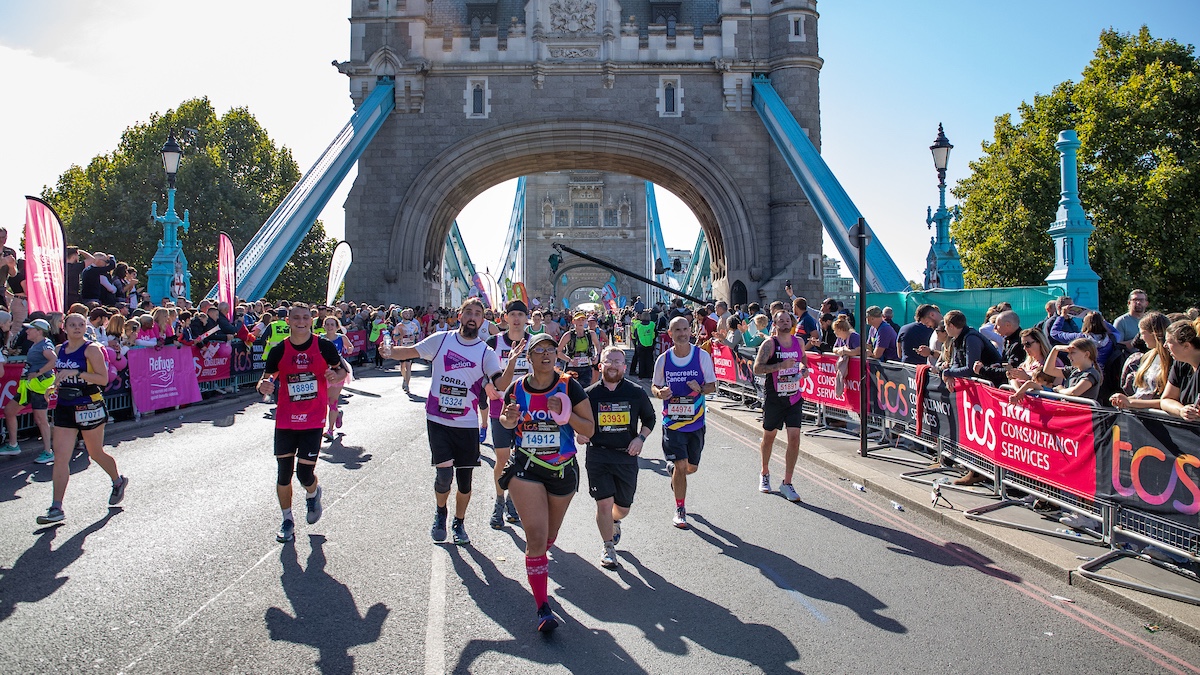
The London Marathon is one of the six World Marathon Majors and has a World Athletics-certified course confirming it is 26.2 miles long (26 miles and 385 yards, fact fans). Or, in metric, 42.195km.
On the course, you’ll see road markings in blue that show the most direct London Marathon route. If you’re after a fast time after months of marathon training try to stick to that route.
However, because of the crowds on the course, only the fastest elite athletes can usually stick to those blue lines, with most runners having to weave around other people and taking wider routes around bends.
As a result, it’s almost certain that you will run more than 26.2 miles. Indeed, it’s the case for any other major city marathon too. Not much more, granted, but enough that you can’t rely on even the best running watches to monitor your distance, especially among the high buildings around London’s Canary Wharf where it’s hard to get a good GPS signal.
I’ve run the London Marathon five times and received different overall distances each time. I’d say the best approach for anyone looking to pace their race is to take manual laps on your watch when you pass the mile or kilometer markers. The London Marathon has these at every single mile and kilometer, making it easy to know exactly how far you’ve come—and how far you have to go.
Why Is A Marathon 26.2 Miles?
World Athletics set the official distance of the marathon at 26.2 miles in 1921, basing it on the distance of the marathon at the 1908 Olympics in London, where participants ran from Windsor Castle to the Olympic Stadium in White City.
One enduring story behind the 0.2 in the distance is that the course was originally set at 26 miles—to finish under the royal box at the White City Stadium—but then the start was moved back 385 yards so it could be seen by children in the royal nursery at Windsor Castle. True or not, it’s something to think over as you run the last 385 yards of a marathon, which can feel an extraordinarily long way.
What Is The Quickest London Marathon Time?
The men’s course record for the London Marathon is 2hr 2min 37sec, run by Eliud Kipchoge in 2019, while the women’s course record is 2hr 15min 25sec, run by Paula Radcliffe in 2003.
Radcliffe ran in a mixed field for the event, whereas the women’s elite field now sets off ahead of the men at the London Marathon, so don’t benefit from the advantage of a mixed field. Mary Keitany has the record for the fastest women-only time at the London Marathon, with 2hr 17min 1sec, which she ran in 2017. That record still stands as the world women-only record for the marathon.







